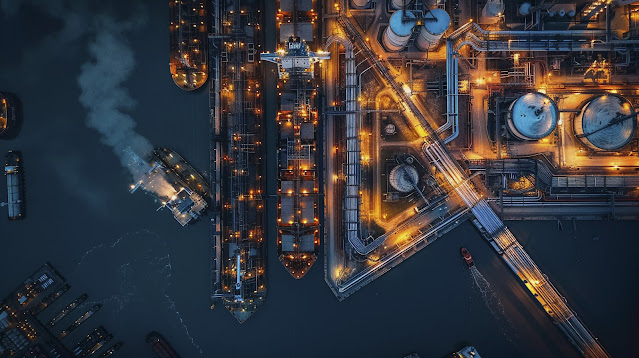Transportation Services in the Mining Industry: Key Solutions & Challenges
The mining industry in India plays a vital role in the nation’s economy, contributing to the supply of coal, iron ore, bauxite, and other essential minerals. However, one of the biggest challenges faced by mining companies is efficient transportation of raw materials and finished products. Reliable transportation services in the mining industry are crucial for timely delivery, cost optimization, and safety.
In this article, we will explore the
role of transportation services, key challenges, and modern solutions that are
transforming the mining sector in India.
Importance
of Transportation in the Mining Industry
Efficient transportation is the
backbone of mining operations. Mining companies in India rely on road, rail,
and in some cases, conveyor systems and waterways to transport minerals from
remote mining sites to processing plants and markets.
Key roles of transportation services
include:
- Raw Material Movement: Hauling ore from mines to crushing plants.
- Finished Product Delivery: Supplying processed minerals to industries like steel,
cement, and power.
- Supply Chain Optimization: Reducing delays and lowering logistics costs.
- Safety & Compliance: Ensuring safe movement of hazardous materials under
government regulations.
Major
Mining Industry Companies in India
Some of the leading mining
companies in India that depend heavily on transportation services include:
- Coal India Limited (CIL): The largest coal producer in the world.
- NMDC Limited:
Major producer of iron ore and other minerals.
- Vedanta Resources:
Engaged in zinc, lead, silver, iron ore, and aluminum mining.
- Hindustan Zinc Limited: One of the largest integrated zinc producers globally.
- Tata Steel Mining:
Specializes in chrome ore mining and ferro alloys.
Each of these companies works with
transportation partners to ensure seamless mineral movement across states.
Challenges
in Mining Transportation
Despite being critical,
transportation services face several challenges in the mining industry:
- Remote Mining Locations: Many mines are located in difficult-to-access areas
with poor road connectivity.
- High Transportation Costs: Rising fuel prices and tolls impact logistics
expenses.
- Regulatory Hurdles:
Compliance with mining and transport regulations can delay shipments.
- Safety Issues:
Accidents and material losses during transit remain a concern.
- Environmental Impact:
Transportation contributes to emissions, requiring eco-friendly solutions.
Modern
Solutions for Mining Transportation
To overcome these challenges, mining
companies and logistics providers are adopting innovative solutions:
- Integrated Rail-Road Networks: Combining rail and road transport for cost efficiency.
- GPS Tracking & Telematics: Real-time monitoring of trucks and shipments for
better control.
- Automated Haulage Systems: Use of self-driving trucks in large mines for higher
productivity.
- Sustainable Transport Practices: Using electric or hybrid vehicles to cut carbon
emissions.
- Digital Logistics Platforms: Enhancing planning and reducing delays with AI-powered
software.
Conclusion
Transportation is one of the most
critical elements of the mining industry company in India. Companies
that invest in reliable transportation
services in the mining industry gain a competitive advantage through
reduced costs, improved delivery timelines, and better safety compliance. With
growing demand for minerals, future solutions will focus on automation,
digitalization, and sustainability to make the supply chain more resilient and
efficient.




Comments
Post a Comment